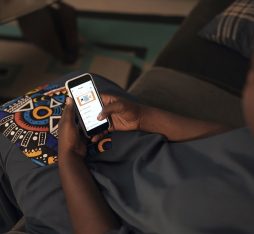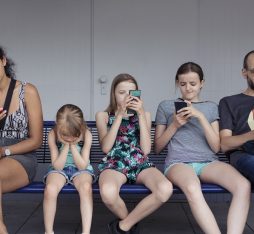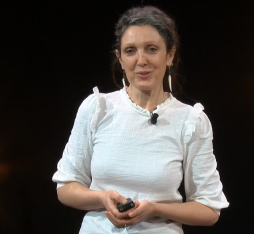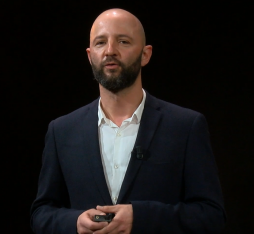How Are Family Relationships Affected by Social Media Use?
Examining the use of social media within families first brings into question the nature of the relationships that exist and are created between individuals within families. What are the effects of such socio-technological networks on pre-existing intra-familial social relationships?
On this topic, sociologist François de Singly observed a weakening of “family communism.” According to him, digital technology, and in particular social media, gives each member within a family group the opportunity to establish their individuality. The family has become a place for individual personalities, which have acquired the right to their autonomy, to develop [Digital Society Forum, 2016].[2]
Of all ICT, the Internet and social media are in particular increasingly present in families and have a significant impact on their internal dynamics. Various studies have examined how individual used of social media can distance members of a family: “The combination of both the individualization of tools and their multifunctionality results in a paradox: Within the home, the personal lives of different members of the family become very visible, but in an opaque way. There is a risk of upsetting the balance between the development of personal privacy and the development of family privacy” [Digital Society Forum, 2013].
However, studies also demonstrate how these tools can, conversely, bring certain members of the same family closer together and strengthen their bonds. This is what Laurence Le Douarin and Vincent Caradec observed for elderly people and their grandchildren [Le Douarin, Caradec, 2009]. In these specific situations, social media can reduce the distance between people: “Far from confirming the belief that the digital divide and the generational gap go hand in hand, the article seeks to show that ICT is a valuable resource for maintaining intergenerational links.”
I thought that this geographical distance would weaken our relationships, but thanks to social media they have become stronger.
Christian Licoppe argued that: “The more we see each other, the more we communicate.” [Licoppe, 2002]. Licoppe argues that technology can strengthen relationships in two different ways: On the one hand, it makes day-to-day relationships easier, and, on the other hand, it supports individualized and personalized intergenerational relationships. Far from creating distance, he thus notes that face-to-face communication becomes intertwined with media-based methods of communication, rather than being replaced.
These various sociological studies show that the use of digital tools and content reinforces tensions or bonds within a household, but are not the triggering factors of such relationships. People use these tools to free themselves from family life, as well as to reinforce and enjoy it. The conversations conducted during the online study also highlighted the wide range of effects, with respondents emphasizing both how social media can strengthen family bonds, as well as how certain tendencies often make others weaker.
Social Media As an Extra Means of Communication Between Parents and Children
Intra-familial uses of social media often begin when a teenager opens an account and their parents wish to join them: “Since summer, I have felt obliged to open accounts on Instagram, Snapchat, WhatsApp and TikTok, because my children use these networks so often.” Accepting their parents as “friends” is often a condition children have to agree to when opening their accounts. Rather than wanting to keep tabs on them, these parents mention that above all they want to be attentive and support their children as they begin to learn about these new platforms.
Family organization then promotes fairly wide-ranging social media use within households, such as asking when someone is coming home, organizing shopping or finding out about major events during the day. It is also a way to show someone attention, to let them know you are thinking about them throughout the day: “My partner and I keep in contact mainly via Snapchat, we send photos with filters or emojis and gifs. It is a way to exchange little messages during the day.” Participants note that their children are more responsive when conversations take place on social media, which, for the sake of simplicity, gradually drives conversations toward this type of platform. These child-parent exchanges are particularly used in cases of shared custody or when children grow up and leave home.
It is also interesting to note that sometimes social media is used in the day-to-day life of a household, despite strong reluctance from some participants. It can be a pretty effective way to get children to listen to you: “Dinner’s ready!!” or, conversely, to keep conversations between adults discrete: “Sometimes we send messages to each other so that we can talk without the children hearing.”
It is clear that the increasing use of social media does not inevitably break down communication between parents and children. On the contrary, it can sometimes be an additional means of communication by facilitating conversations about topics shared online: “I also think that children are sharing things on social media that they wouldn’t necessarily talk to us about. This gives us a starting point for conversations.”
Social Media Maintains—and Even Strengthens—Bonds with Extended Family
As well as such uses within households, social media seems to be used more often when communicating with extended family. Social media makes it possible to “be together as a family” with people who are more distant geographically or emotionally. Lockdowns particularly demonstrated a strong need to connect and the desire to create shared moments remotely, especially with older members of the family who have had accounts made for them. Families developed new communication habits, which are often still in use.
Again, we can see that social media has made strengthening certain relationships possible. Firstly, they make it possible to maintain or even strengthen, bonds and emotional closeness with loved ones who cannot be met in person due to geographical distance: “Since I’ve been living abroad, I share much more with my parents than I did when I was in France 30 minutes away from home,” said one of the study participants. They also allow renewed communication in family relationships where, due to geographical distance, there was either no relationship or it had faded away: “One of my cousins lives in the United States. We see each other once a year when she visits her parents. Up to now, we would exchange pleasantries via Facebook. For the past few months, we’ve been regularly talking over video via Skype and especially via WhatsApp. When we were little, we were quite close. We’ve suddenly found each other again! We also invite her sister and with all three of us it feels like we are back together again. It’s great!” Social media also extends or even strengthens relationships between people who are geographically close and we often see in person: “I even talk to my parents and my father-in-law (who live 5 and 10 km away) on WhatsApp almost every day, even though we see each other a lot. It replaces giving them a quick call as I did in the past.” Finally, social media means we can create less intimate links with family members who we are not emotionally close to and who we do not see often: “This creates a relationship even if it is not as close and also allows you to keep in touch by liking or commenting on a post. I would say that overall I am in contact on social media with the family that I never or almost never see or call.”
Observed Tendencies That Sometimes Break Down Relationships
These four types of situation are testament to the positive role social media plays in maintaining intra-family communication. Nevertheless, the study also highlights a number of negative tendencies that sometimes damage these relationships. In particular, participants mentioned the risk of relationships becoming less intimate because connections are more superficial as a result of lower levels of investment. Participants felt like it was not always useful to catch up properly with someone when just a “like” was enough to show your loved ones you were there or when birthday cards were replaced by a quick Facebook message. One wrote: “I catch up with people’s news but indirectly through likes or 2–3 sentence comments and that’s it.” It can even go as far as risking breaking down relationships when certain groups have a steady and ever-increasing flow of messages that eventually exclude certain members who can no longer keep up and become overwhelmed: “You can feel excluded on some networks like Facebook where some people are very active and systematically reply to other people’s comments. Little groups emerge, it’s a bit unpleasant.” Not belonging to certain groups also excludes some people from many family conversations and exchanges, including in real life, as explained by another participant: “Snapchat and Instagram became very popular and I really felt out of step with my friends and my family and I felt obligated to take an interest in it so that I would no longer feel left out when they talked about what they had shared virtually via social media in real life.” Social media also risks causing feelings of emptiness and frustration. Being able to see whether contacts are available on social media leads to high expectations of quick response times: “It just leads to problems and frustration. Someone might be able to open the message quickly but not have time to answer. Then I will see the notification that they have read the message and wait wondering why they are not answering me.” Many questions arise when something is not answered immediately: “We are unhappy when nothing happens.”
Finally, there are a number of expected implicit codes when using social media, which can lead to conflicts between people due to misunderstandings when using the sites. For example, refusing a friend request on social media is seen as being a thorny issue as it may offend the person sending the request. According to the participants of the study, leaving a group is also taboo.
Conclusion
In conclusion, the use of social media in families has been added to variable pre-existing contexts of communication. It therefore has different effects on the nature and the depth of relationships, which can be weakened or strengthened to the same extent. Social media is thus never the sole cause of a lack of communication within a family but it can reinforce existing problems.
Moreover, we can see a real paradox in the uses described. There is a strong desire to maintain or even strengthen relationships with extended family members and social networks can help to do so. However, at the same time, the study showed the aim of devoting as little time to this as possible, which can lead to some of these relationships becoming more superficial.
Examining what the uses of social media reveal about family links and how they transform and build them is an important issue on which much remains to be learned. For Orange as a telecommunications company, understanding how individuals communicate, how they use the tools they have access to, and how such uses evolve over time is invaluable knowledge for learning how to position its service offering.
[1] Dream Café by Orange is a community site on which online qualitative studies are carried out amongst Internet users via discussion forums. 30 people participated in this study. It is a place to share experiences, test out mock-ups and services, share ideas about certain concepts or even create them, give feedback on prototypes and look to the future.
[2] The Digital Society Forum is an open collaborative platform initiated by Orange to provide everyone with the keys they need for better understanding our digital world. The DSF brings together sociologists, academics and stakeholders within civil society to discuss major themes regarding daily life.











